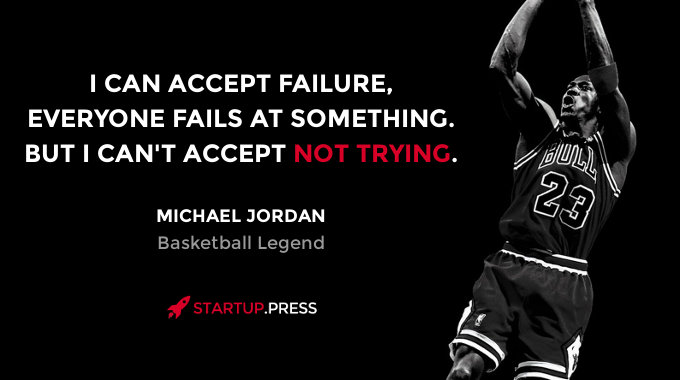There are a thousand and one cliches out there about failure and how you need to get back up and keep going when your business fails for the first, second, third, etc., time.
More important than the “getting back up” part, is to have the ability to see the forest for the trees. To recognize where you went wrong and how to avoid those pitfalls in your future endeavors.
Here are 10 lessons you should take away from each failed startup business:
1. How to assign blame
In order to move on, you have to accept responsibility for your own failure. It’s hard, yes. But you have to do it. It’s not the price of oil, or because there’s a new President in office. It’s not your partner, or employees who weren’t willing to work harder as the business started to crash. It isn’t even because your product didn’t resonate with the market.
The person at fault is staring you in the face every morning while you brush your teeth. Get this, and you can move on, figure out what else went wrong, and do better the next time.
2. How not to dwell
Just take a look at the US President Donald Trump’s billion dollars in failed companies. Do you think he’s sitting around moping about how his board game launch failed back in the 80s? No way! He’s got better things to do and so do you.
He admitted defeat, picked himself up, dusted himself off and went on to launching more casinos and preoccupying himself with the dozens of other projects he no doubt had on the go at that time.
3. How rebranding a failed business is futile
Just don’t do it. it rarely works and usually fails! Once you’ve come to the point where a business has indeed proved itself a failure, it’s time to move on.
Don’t be so vested in your failures that you waste precious time and money trying to revive something that was destined to die in the first place.
4. How businesses are built around customers, not YOU
Were you so sure that everyone on the planet wanted a steaming hot cup of your Urinal tea (not misprint) that you just had to rush it out to market before asking anyone whether they’d buy such an absurd disgustingly-named product?
It’s time to smarten up and realize that what you envision and what people want may be different things entirely. One mistake doesn’t make you delusional, but don’t let yourself become victim to one asinine urge after another.
5. How passion alone isn’t always enough
Perhaps all the research showed that the product or service wouldn’t be a hit, but your passion drove you past logic and into insanity. Realize that you’ll need your unwavering passion to make the next business successful, but that passion needs to be bridled in the face of overwhelming common sense.

6. How you can’t always go it alone
Are you a renowned expert in all facets of the businesses you build? Not very likely.
- Did you consult enough people who knew more than you the first (or second, third, etc.) go round?
- If so, did you listen to or ignore their advice?
- Could you have had a partner or two who could have contributed to the success, rather than failure of the business?
7. How you can never stop selling
Businesses fail for any number of reasons, but it all usually boils down to a lack of funds in the end, regardless of how well the business did at its peak or how you got to the point of BROKE. Sales can cure almost anything that ails a business. You can never have too much money to cushion the falls you take along the path.
Mark Cuban says: “I still work hard to know my business. I’m continuously looking for ways to improve all my companies, and I’m always selling. Always.”
8. How investors can keep you off the ledge
How much money would have saved the business from financial ruin? Would it have had a better start with more money during the launch and first growth stage? Money can’t fix bad ideas, but it can (to an extent) save you from bad financial choices, creditors, and competitors with bigger cheque books.
Smart entrepreneurs cultivate relationships with every investor they can so they always have a potential cash stream to tap into when they need it.
9. How you have to care about the business
Too much passion at the wrong time is bad. Not giving a hoot one way or the other can sabotage a business faster than Usain Bolt can run a 100-meters (ie., really fast!)
If you don’t have a passion for building a specific business, or any business at all, maybe a J.O.B. is the best way to support yourself and your family.
10. How you have to be present in your business
A hands-off approach to running a business is a dream rarely fulfilled. At least not until you have millions of cash to invest, with no worry of going broke when you make a bad deal. If you’re running your own business, you have to be there or lots of bad things can happen without your knowing about them.
All-in means all-in. You have to be an active participant. If you’re not committed 100 percent, who will be? How will the business grow and thrive?

Takeaway
I’ll leave all the cliches about failure to the millions of other bloggers and vloggers out there.
There are two main takeaways I want you all to leave here with today:
- Learn from your defeats.
- Rise to fight another day using the lessons you’ve learned.
That’s it! Never give up learning from that which doesn’t work, and never give up striving to achieve your ultimate entrepreneurial dream. Whatever that dream may be.




